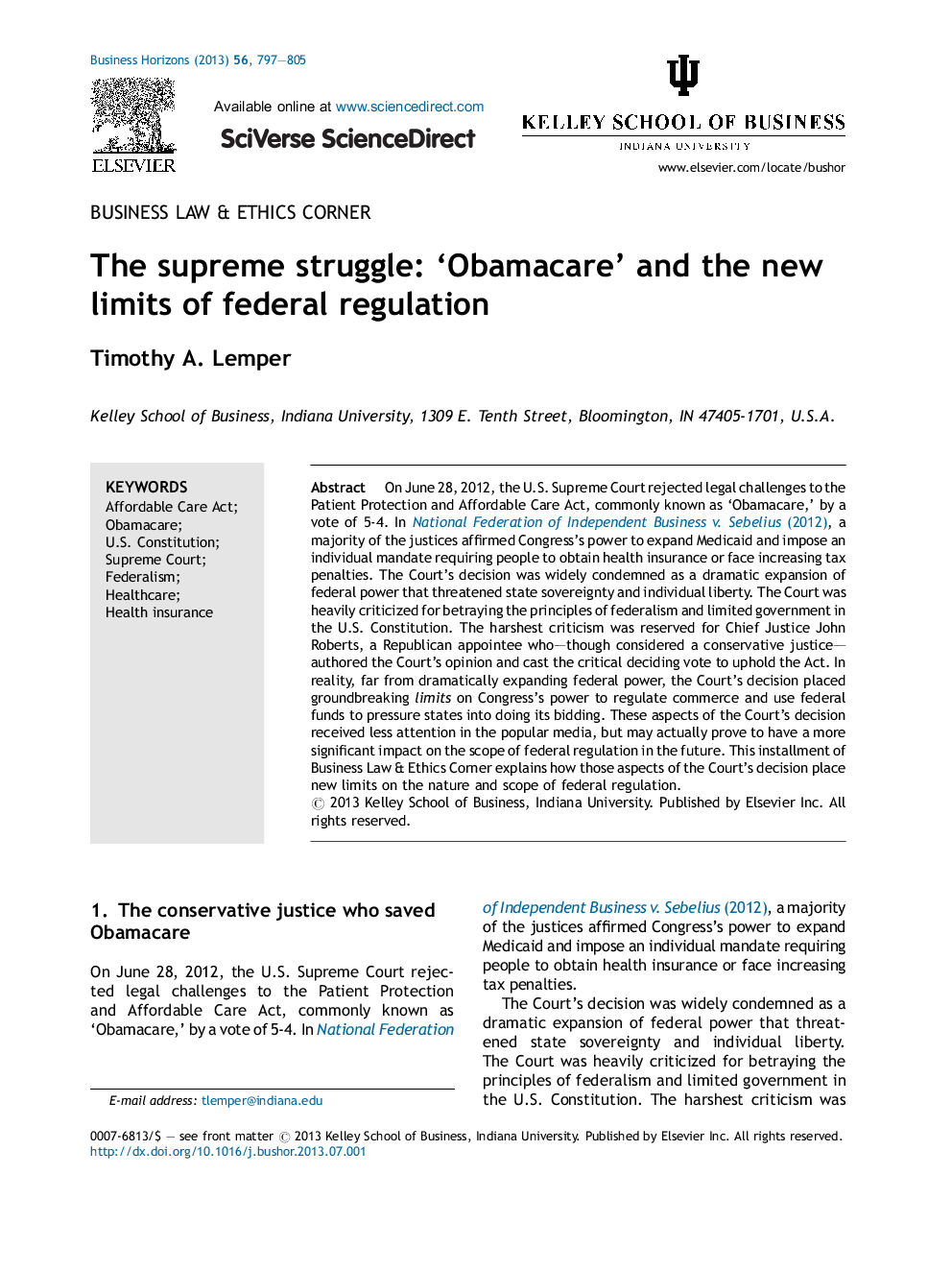| Article ID | Journal | Published Year | Pages | File Type |
|---|---|---|---|---|
| 1013956 | Business Horizons | 2013 | 9 Pages |
On June 28, 2012, the U.S. Supreme Court rejected legal challenges to the Patient Protection and Affordable Care Act, commonly known as ‘Obamacare,’ by a vote of 5-4. In National Federation of Independent Business v. Sebelius (2012), a majority of the justices affirmed Congress's power to expand Medicaid and impose an individual mandate requiring people to obtain health insurance or face increasing tax penalties. The Court's decision was widely condemned as a dramatic expansion of federal power that threatened state sovereignty and individual liberty. The Court was heavily criticized for betraying the principles of federalism and limited government in the U.S. Constitution. The harshest criticism was reserved for Chief Justice John Roberts, a Republican appointee who—though considered a conservative justice—authored the Court's opinion and cast the critical deciding vote to uphold the Act. In reality, far from dramatically expanding federal power, the Court's decision placed groundbreaking limits on Congress's power to regulate commerce and use federal funds to pressure states into doing its bidding. These aspects of the Court's decision received less attention in the popular media, but may actually prove to have a more significant impact on the scope of federal regulation in the future. This installment of Business Law & Ethics Corner explains how those aspects of the Court's decision place new limits on the nature and scope of federal regulation.
